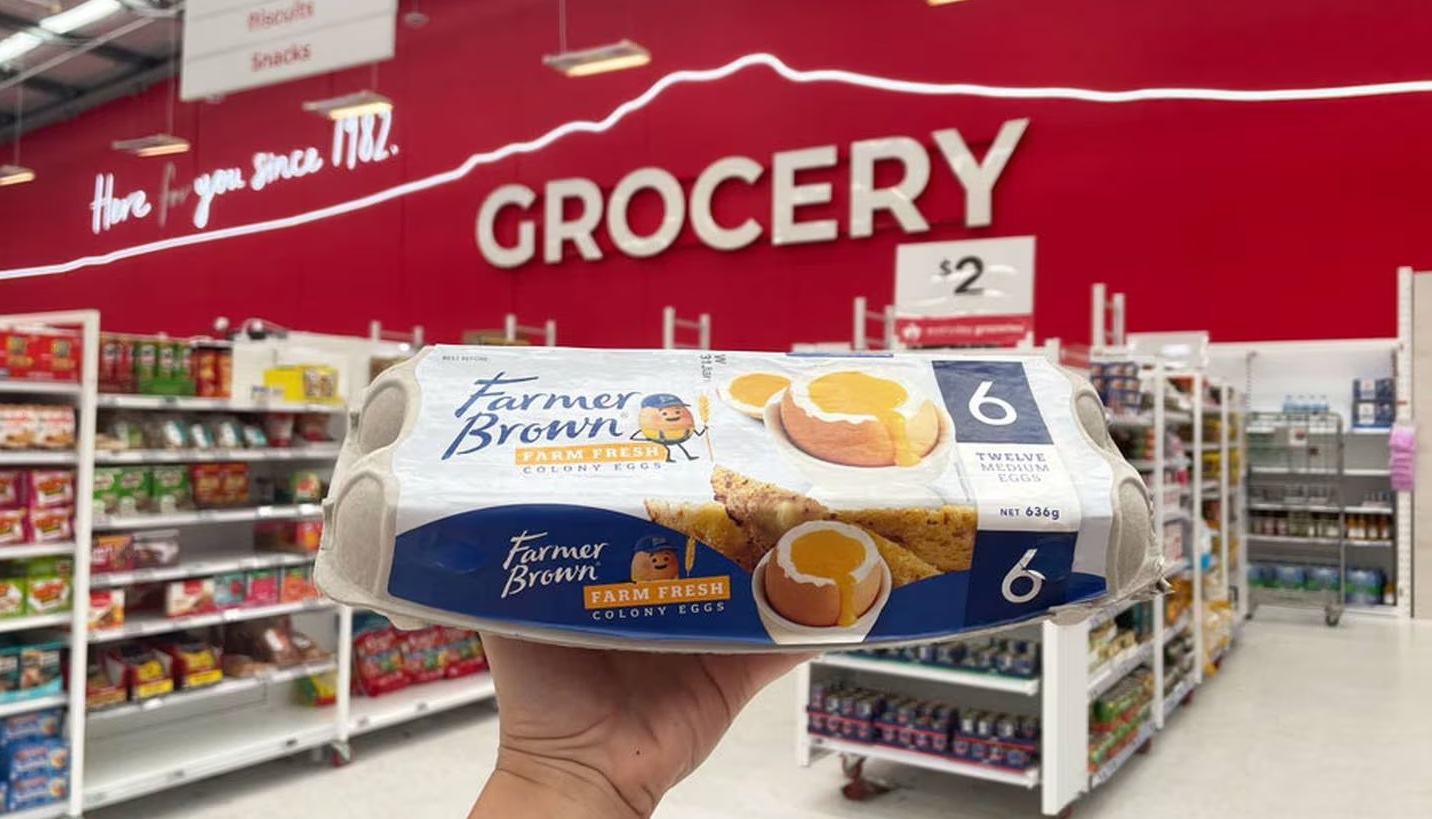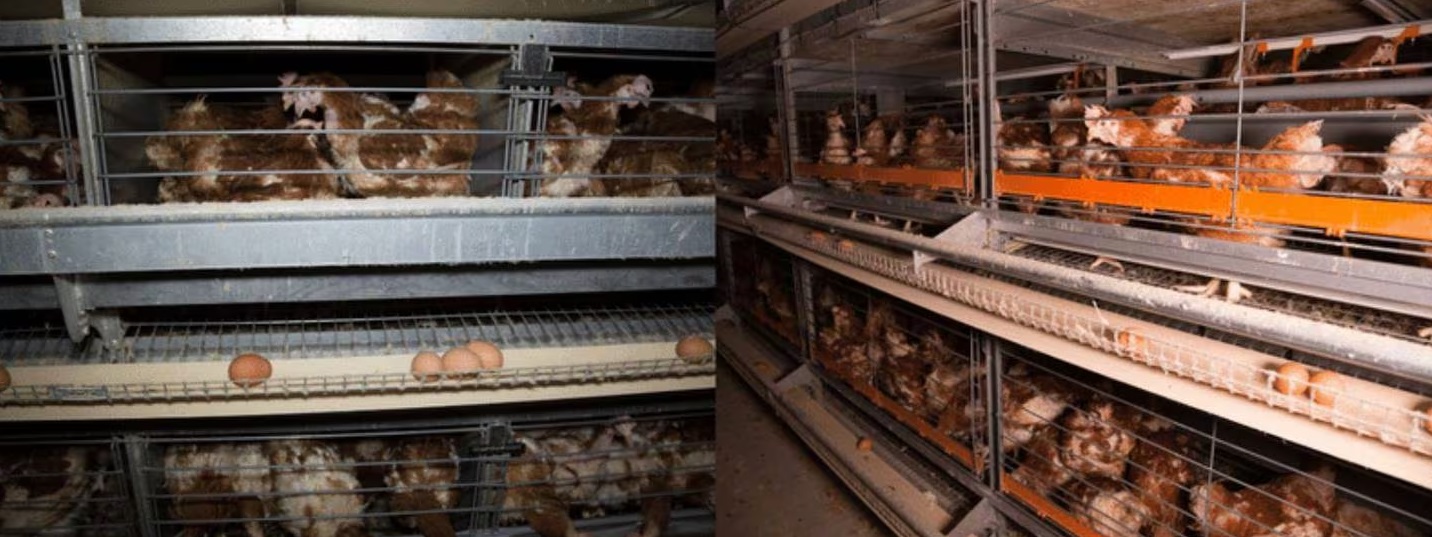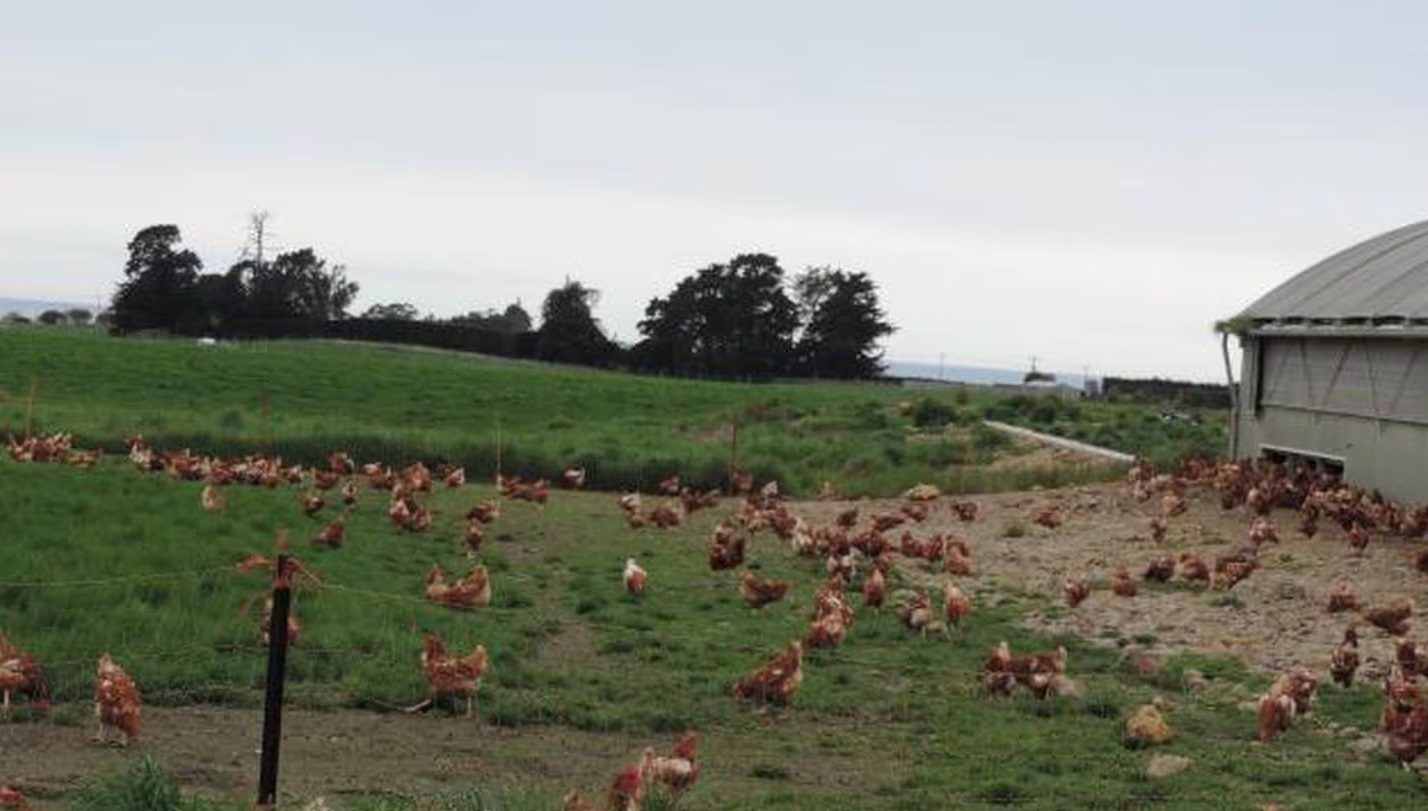
Cheap prices for a dozen colony eggs has concerned some animal welfare experts, who say there is a sad reason behind the low cost.
This week’s news that The Warehouse was selling Farmer Brown colony eggs for $5 a dozen saw animal welfare groups renew calls for better labelling so consumers knew what they were buying.
Colony eggs are from caged hens with living conditions experts say are just a small step up from battery cages which are now banned.
The SPCA, Safe, Veterinarians for Animal Welfare Aotearoa (VAWA), Animals Aotearoa and other welfare groups oppose colony farms and want them banned.
“There is a reason these eggs are so cheap and it’s because of the deprived conditions the hens who produce them live in,” Jessica Chambers from Save Animals from Exploitation (Safe) said.
“Colony cages are banned in a lot of countries overseas and 76 percent of New Zealanders want all cages banned here.”
Hens are intelligent and social animals and caged hens suffer poor physical and emotional health, animal welfare advocates say. Disease, parasites, feather loss and brittle bones are some health conditions these birds suffer.
Crowded conditions lead to anxiety, stress, boredom, and fear, experts say.

“The word caged has been ... dropped from packaging [but] some New Zealanders aren’t fully aware of what they are buying,” Chambers said.
Veterinarians for Animal Welfare Aotearoa (VAWA) managing director Helen Beattie agreed and said labelling needed to be honest.
“Labels such as ‘colony laid’ or ‘fresh colony eggs’ deliberately avoid the word cage.”
Farmer Brown eggs are labelled ‘Farm Fresh’ and eggs sold under the brand Rise ‘n Shine are described as ‘Colony Fresh’. The word cage is not included on any packaging.
The colony eggs are sold throughout New Zealand in most major supermarkets.
The Herald has approached Farmer Brown for comment.
The Commerce Commission is “currently assessing” the wording on egg cartons following a complaint.
A spokesperson said the Fair Trading Act prohibits false and misleading claims.
“It’s also worth noting that claims can be literally true whilst still creating a misleading impression. For example, by the use of imagery and/or omitting certain words that may create a different impression for the consumer,” the spokesperson said.

Michael Brooks from the Poultry Industry Association of NZ (PIANZ) defended colony cages and said the welfare of layer hens was paramount to every farmer, “be they free range, barn, or colony layers”.
“Without good welfare, the hens don’t lay, and the farmers don’t have a business,” he told the Herald.
“The end benefit for many consumers is that it costs less to grow a colony egg, than it does a free range or a barn one, so for those seeking an affordable form of versatile natural protein, colony eggs are an important part of the mix - particularly in the economic climate New Zealanders are currently in.”
The Warehouse said it offers customers choice and affordability in its egg range and as well as the $5 colony eggs it had also reduced the price on a dozen free-range eggs from $9.50 to $8.
Despite colony farms being legal in New Zealand, most other New Zealand supermarkets have made a commitment to be cage-free within the next few years.
A spokesperson for the Egg Producers Federation of New Zealand was unavailable to comment ahead of publication but the organisation’s website states the “colony cage environment” meets “quality and welfare requirements” under the Code of Welfare for Layer Hens “while also being cheaper, helping maintain the affordability of eggs for consumers”.
Who’s going cage-free - and who’s not?
Unlike other supermarkets, The Warehouse had no set plans to go cage-free. Instead, the business said it worked with suppliers to follow government and public sector advice and “was supportive of any changes made to animal welfare guidelines”.
Countdown (which is currently rebranding to Woolworths) and Supervalue plan to be 100 percent cage-free in the North Island by the end of this year and in the South Island by the end of 2025.
Supervalue plans to be cage-free by the end of 2024, and Pak’nSave, New World and Four Square will all be cage-free by 2027
Where does the SPCA stand on colony cages?
The SPCA opposes farming hens within colony cages. The Animal Welfare Act states that animals must be provided the opportunity to express normal behaviours. For hens, that means scratching, dust bathing and foraging. While the Ministry for Primary Industries (MPI) argues that colony cages allow this by providing perches and scratch pads, the SPCA said colony cages do not meet the basic needs of hens.
What do the various egg labels mean?
Battery cages
Now banned in New Zealand, battery cages house three to eight hens within cages stacked on top of each other in sheds of up to 45,000 hens.
Battery hens have a space smaller than an A4 piece of paper to move around in. They cannot perch, nest, dust-bathe or spread their wings.
In December 2012, the Government outlawed battery cages because they prevent hens from expressing normal patterns of behaviour – a requirement under the Animal Welfare Act 1999. Producers were given 10 years to prepare for the ban which came into effect in January 2023.

Colony cages
One-third of egg-laying hens in New Zealand live in colony cages. The cages are larger than the now-banned battery cages but there are 60-80 hens per cage.
Cages include a perch, a rubber scratch mat and a nesting area but the SPCA says they “still force hens into cramped metal spaces that do not allow the birds to display normal behaviour”. Colony hens can suffer from feather loss, injuries from pecking and brittle bones from lack of movement, animal welfare experts claim.
Cage-free or barn eggs
In barn and cage-free systems, hens roam freely inside large sheds and have perches to roost on and space to stretch their wings so they can scratch, dust-bathe and nest. Barn hens do not have access to the outdoors.
Free-range
The key difference with free-range egg farming is the hens’ access to the outdoors - to a maximum of 2500 hens per hectare.
Free-range hens must also have shelter.
In larger farms they are housed in sheds with nest boxes and perches and can exit through holes in the shed walls.
Organic Free-range
Hens at organic free-range farms are fed certified organic grain and can forage outside for insects and seeds, with access to open-plan barns for sanctuary.
Your backyard (Auckland Council)
The rules are stricter if you choose to keep hens in your own back yard.
Under the Animal Management Bylaw 2015, you must provide shelter and access to an area of land greater than 3 sqm, and it must include an enclosed rainproof chicken coop, at least 30cm of perch per chicken, a minimum roof height of 60cm, a surface for pecking and scratching and a secluded nesting area.
Properties smaller than 2000 sqm can keep a maximum of six chickens.
What you can do
If you want to buy from systems that prioritise animal welfare, look for the SPCA Certified logo. Eggs certified by the SPCA are available at all major supermarkets.














